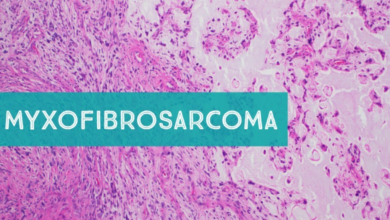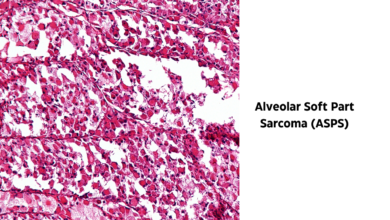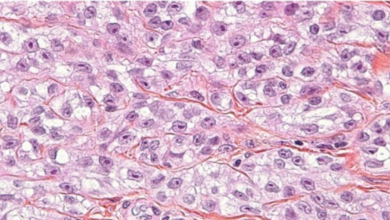
What is Leiomyosarcoma?
Leiomyosarcoma is a rare type of soft tissue sarcoma that originates from smooth muscle cells. It can develop in various parts of the body, including the uterus, gastrointestinal tract, and extremities.
Types of Leiomyosarcoma
Leiomyosarcomas can be classified based on their location:
• Uterine leiomyosarcoma: Arises in the uterus.
• Gastrointestinal leiomyosarcoma: Develops in the digestive tract.
• Extremity leiomyosarcoma: Occurs in the arms or legs.
Symptoms of Leiomyosarcoma
Symptoms of leiomyosarcoma vary depending on the location of the tumor. Common symptoms include:
• A painless lump or mass
• Abdominal pain or discomfort
• Vaginal bleeding (in case of uterine leiomyosarcoma)
• Changes in bowel or bladder habits (in case of gastrointestinal leiomyosarcoma)
• Pain or swelling in the affected extremity
Causes of Leiomyosarcoma
The exact cause of leiomyosarcoma is unknown. However, certain factors may increase the risk, such as:
• Genetic factors: Certain genetic mutations may increase susceptibility.
• Exposure to radiation: Exposure to radiation can increase the risk of developing certain types of cancer.
Who Can Suffer from Leiomyosarcoma?
Leiomyosarcoma can affect people of all ages, but it’s more common in adults.
Diagnostic Tests for Leiomyosarcoma
To diagnose leiomyosarcoma, a doctor may use a combination of tests, including:
• Physical exam: To check for any lumps or masses.
• Imaging tests: X-rays, CT scans, MRIs, and PET scans can help determine the size and location of the tumor.
• Biopsy: A tissue sample is removed from the tumor and examined under a microscope.
Stages of Leiomyosarcoma
The staging of leiomyosarcoma helps determine the extent of the disease and guides treatment decisions. The American Joint Committee on Cancer (AJCC) staging system is commonly used.
Treatment of Leiomyosarcoma
The treatment for leiomyosarcoma depends on the type, stage, and location of the tumor. Common treatment options include:
• Surgery: To remove the tumor and affected tissue.
• Chemotherapy: To kill cancer cells throughout the body.
• Radiation therapy: To kill cancer cells in a specific area.
Diet and Leiomyosarcoma Prevention
While a healthy diet cannot directly prevent leiomyosarcoma, it can support overall health and strengthen the immune system. Here are some general dietary recommendations:
• A balanced diet: A diet rich in fruits, vegetables, and whole grains can help.
• Limit processed foods and sugary drinks: These can contribute to weight gain and other health problems.
• Maintain a healthy weight: Obesity is linked to an increased risk of certain cancers.
Here are some general dietary recommendations:
• A balanced diet: A diet rich in fruits, vegetables, and whole grains can help.
• Limit processed foods and sugary drinks: These can contribute to weight gain and other health problems.
• Maintain a healthy weight: Obesity is linked to an increased risk of certain cancers.
Overall Survival Rate of Leiomyosarcoma
The overall survival rate for leiomyosarcoma varies depending on the type, stage, and location of the tumor. While advancements in treatment have improved outcomes, it remains a serious condition. Early detection and timely treatment are crucial for a better prognosis.
Doctor to Consult
A surgical oncologist or a medical oncologist specializing in soft tissue sarcomas is the best doctor to consult for leiomyosarcoma.
Diseases Associated with Leiomyosarcoma
Leiomyosarcoma is not directly associated with other specific cancers. However, certain genetic factors and environmental exposures may increase the risk of developing the disease.
How to Prevent Leiomyosarcoma
While there’s no guaranteed way to prevent leiomyosarcoma, maintaining a healthy lifestyle can reduce the risk of certain factors that may contribute to the disease:
• Limit exposure to radiation and certain chemicals: Exposure to these substances can increase the risk of certain types of cancer.
• Maintain a healthy weight: Obesity is linked to an increased risk of certain cancers.
• Regular check-ups: Regular check-ups can help detect any abnormalities early on.
• Healthy lifestyle: A healthy lifestyle, including a balanced diet and regular exercise, can help boost the immune system.





